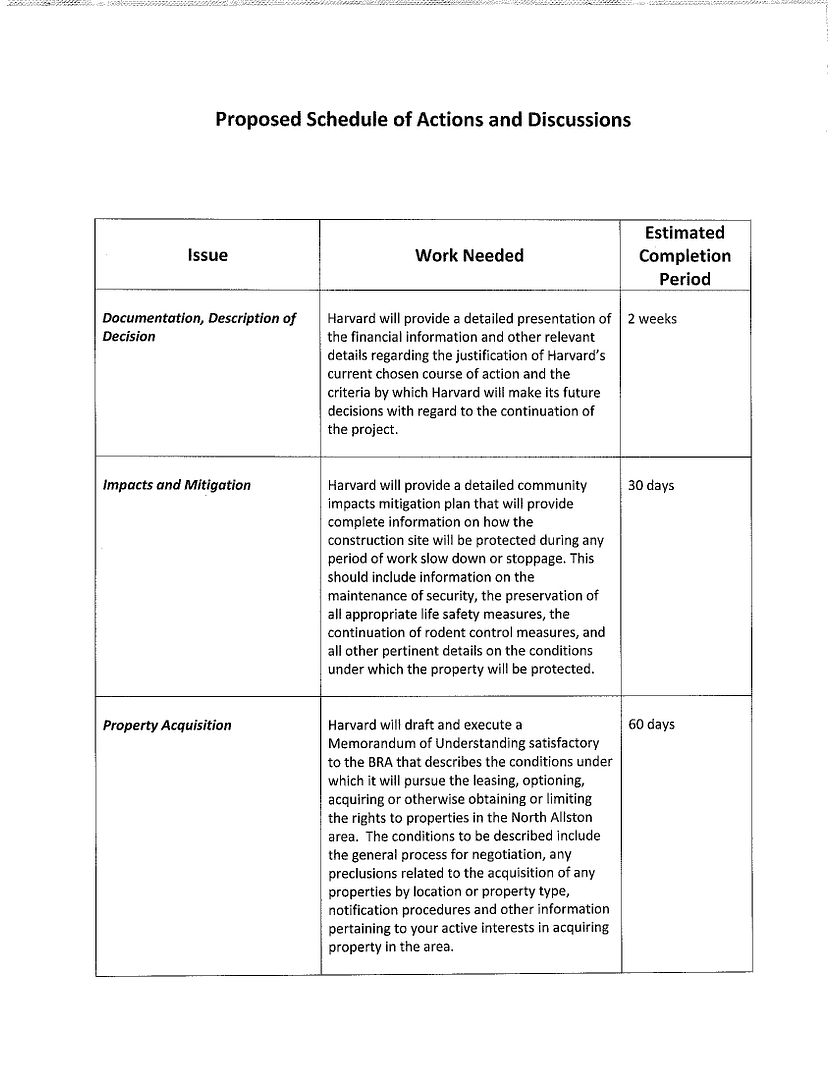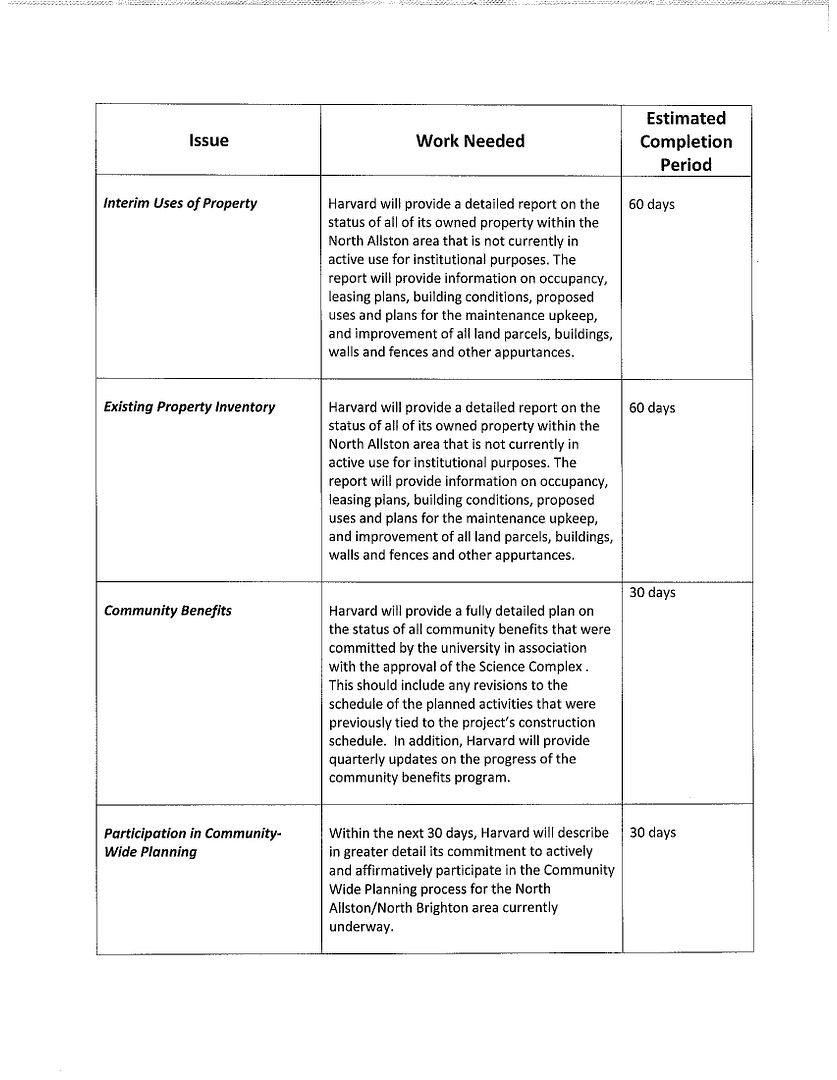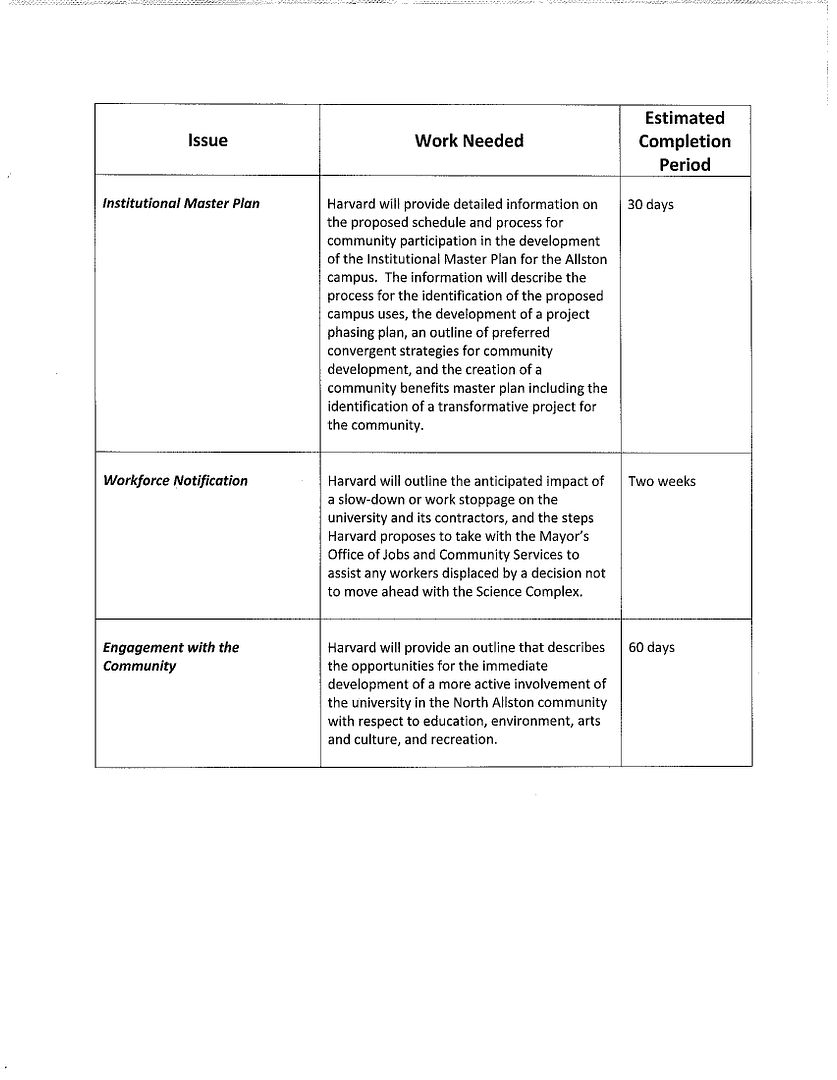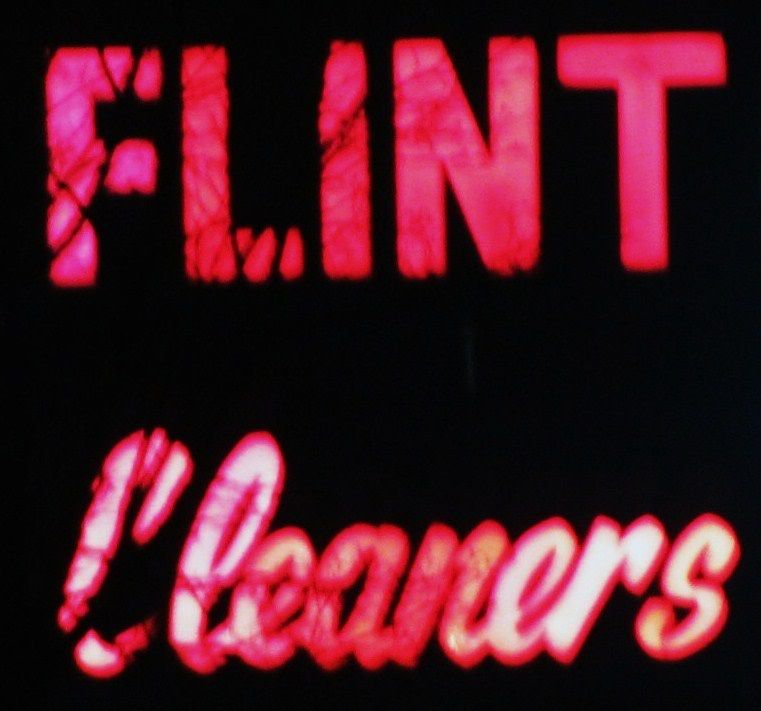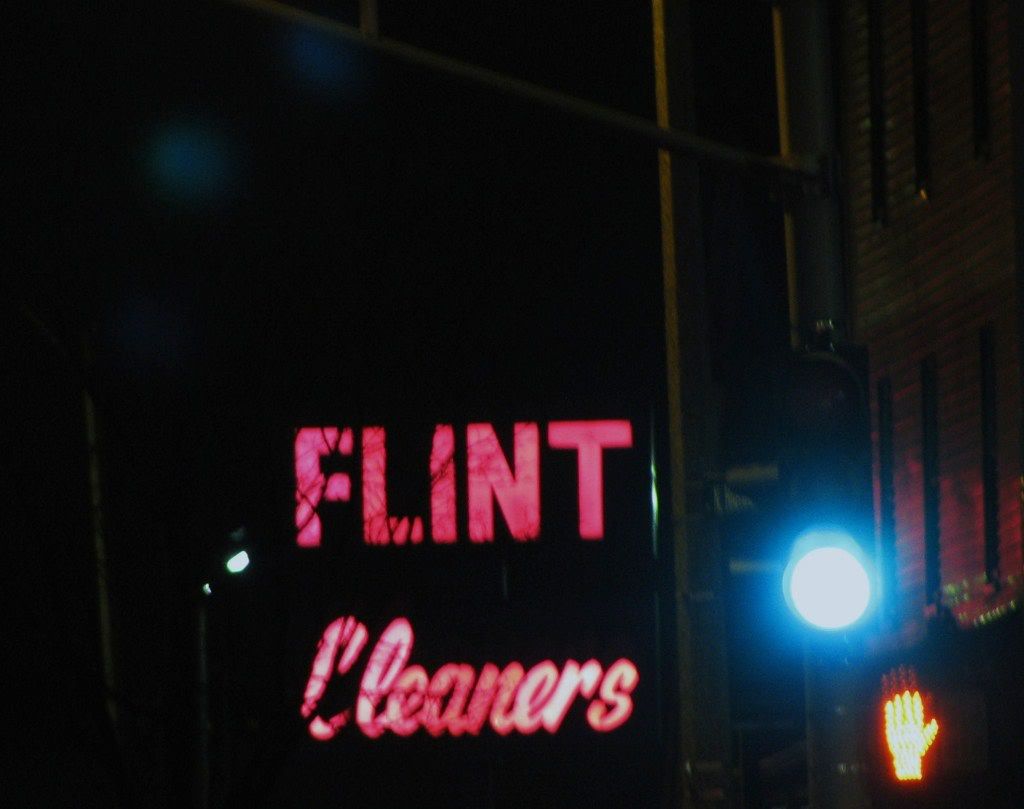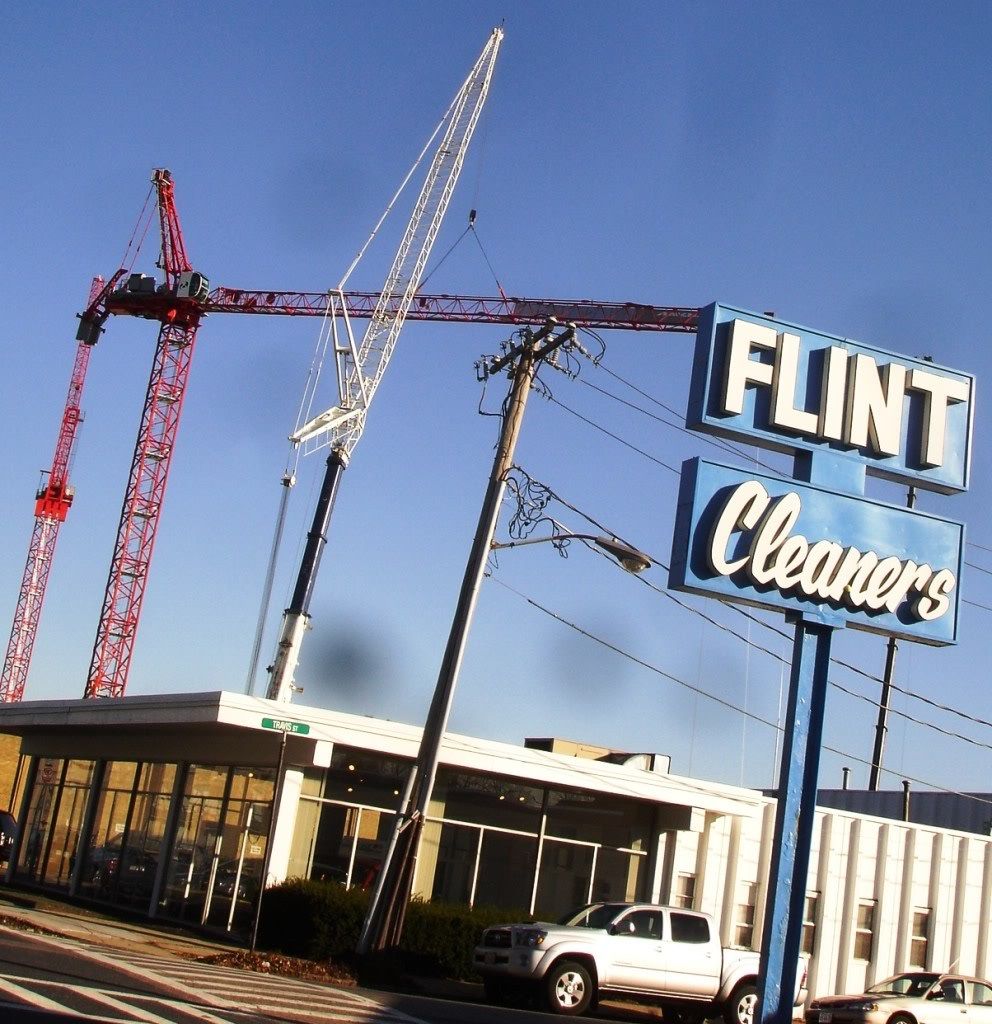To me, Harvard is going around asking alumni to donate money to their school saying that they are hurting badly right now.
To be spending a few billion on fancy new buildings while you have the tin cup out is bad taste.
or while laying off people
To me, Harvard is going around asking alumni to donate money to their school saying that they are hurting badly right now.
To be spending a few billion on fancy new buildings while you have the tin cup out is bad taste.
She just admitted her neighborhood is blight. In other quoted articles the neighborhood is lovely and Harvard's plans would ruin it.
I'm glad Harvard shut off their golden faucet. I've been to some of these meetings. The neighbors were always of the mindset "you have billions of dollars, you are so rich, so flush with money, there is no reasonable reason why you can't give us your money"
Millions, literally millions of dollars have been poured into this area already by Harvard. Harvard built a really great library that is the only decent thing in the neighborhood. The neighbors, saddled up to Harvard's buffet, kept demanding more, more, more.
Harvard knows that every single step along the way to building out Lower Allston will be met with this attitude.
Every single request that Harvard ever needs to make will be a shake-down, every single little thing will result in the neighbors calling Harvard names like "elitist" and calls of "why don't you take your billions and fix up the [insert anything and everything here]".
The meetings, year after year of meetings, take their toll on sanity - and the pocketbook. Harvard's lawyers and advisers aren't cheap.
Harvard has decided they are done playing this little game. The economy has given them an "out" and they've taken it. For now. They will return, and when they do, I would hope it's on their terms.
Press Release:
Local group launches campaign of active resistance to Harvard?s occupation:
Tonight, Monday, February 23, 2009, the Allston/Brighton Neighborhood
Assembly responded to Harvard?s announcement of a slow-down in the
construction of the Harvard Science Complex on Western Ave by launching a
campaign of active resistance. After 10 years of Harvard?s land banking
and driving down the property value and standard of living in our
neighborhood, ABNA says, ?enough!?
At 5:30pm, one hour prior to the Harvard-Allston Task Force meeting?where chief operating officer of the Allston Development Group, Christopher
Gordon, and Harvard?s other mouthpieces attempted to defend their claim
of being broke to a roomful of irate and boisterous neighbors?members of
ABNA hung three banners on three of Harvard?s many vacant properties
along Western Ave. ABNA, like the rest of the neighborhood, believes that
these structures can and should be leased or sold to businesses that are
useful and beneficial to the community?immediately.
On the abandoned Charlesbank Cleaners, 269 Western Ave, folks hung a
banner that read, (in English and Spanish) ?Harvard occupied waste of
space.? Off of the old Citgo station at the corner of Western and North
Harvard, a banner read, ?Why am I Vacant? Ask Harvard: 617 469 6688,? and
off the gates of the Science Complex construction site itself, a banner
read, ?28.7 Billion is not broke. Finish what you started.?
ABNA members were also out in full strength at the Task Force meeting,
contributing to the lively discussion and debate. At the end of the
meeting, some activists left a banner that read, ?It?s Time For
Resistance,? on the fence facing the library. The hope is that residents
leaving the meeting might see it, and in turn think up and execute their
own creative actions to show Harvard and the City of Boston that we will
defend our neighborhood.
The Allston/Brighton Neighborhood Assembly is an all-volunteer, directly
democratic organization of residents, local workers and students,
dedicated to preserving the interests of our working class neighborhood
in the face of ceaseless institutional expansion coming from all sides.
Defend Allston-Brighton.
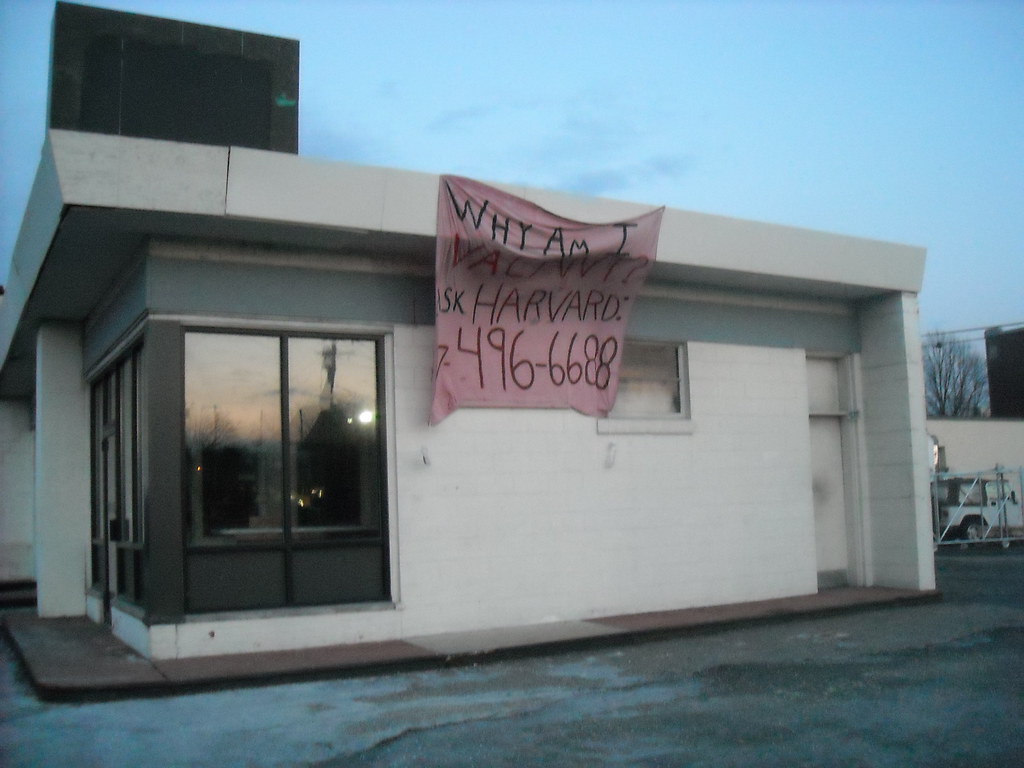
http://www.boston.com/news/educatio...24/allston_residents_blast_harvard_officials/Allston residents blast Harvard officials
Construction pace angers community
By Tracy Jan, Globe Staff | February 24, 2009
Harvard University officials attempted to placate Allston residents at a standing-room-only community meeting last night by reiterating the school's commitment to the neighborhood despite an expected delay in expanding its campus across the Charles River.
The largely hostile crowd accused Harvard of sucking the life out of a neighborhood now littered with empty university-owned storefronts, and implored the school to impose a moratorium on buying property until it completes a state-of-the-art science complex originally slated to open in 2011.
The university, struggling to cope as its endowment plummets amid the recession, announced last week that it will probably slow, or even halt, construction of the science complex after the foundation work is done later this year.
That news prompted more than 100 community members to pour into the Honan Library for the regular meeting of the Harvard-Allston Task Force.
They fired questions at Harvard officials about the future of the neighborhood. State and local politicians, including mayoral candidates Michael Flaherty, Sam Yoon, and Kevin McCrea, flanked the crowd.
"You shouldn't be able to land-bank in our city until you develop what you currently own," said Flaherty, to audience applause.
Chris Gordon, chief operating officer of Harvard's Allston Development Group, said the university could not guarantee it would not add more land to the more than 350 acres it owns in Allston. But he acknowledged that Harvard should work harder to rent out its properties.
"There's definitely more that can be leased out," Gordon said. "Especially now, we can probably be even more aggressive about it."
Allston resident Molly Adelstein compared Allston's relationship with Harvard to a romantic partnership gone awry. She accused Harvard of "wining and dining" Allston, earning residents' trust - then leaving them in the lurch. She called for a breakup and "reparations" to the community.
"Our relationship with Harvard is an abusive one," Adelstein said. "Harvard has shown that it can slap us around."
Gordon, who took most of the heat during the two-hour meeting, assured residents that within the next year, Harvard would fulfill promises it had made to the community. The approximately $25 million in negotiated community benefits ranges from new parks and landscaping to an education complex for local children to receive mentoring from Harvard students and for adults to learn workforce skills.
"These aren't easy times," Gordon said after the meeting. "Our goal was to be as open as we could. Now, for better or for worse, we have a little more time to try and get this stuff right."
A CITGO station.What was formerly in the building with the red banner?



Chsarlesview is more wood than concrete I think.They bit the hand that feeds.
Barry's corner is a dunkin donuts/7-11 concrete wasteland bordered by a large, ugly, concrete housing project.
It'll now stay that way.

Nearly 40 years ago, amid tensions over urban renewal, five Allston-Brighton congregations got together to build an affordable housing project at Barry's Corner. Charlesview (above), with 213 units, is still administered by a board appointed by the three surviving religious institutions: St. Anthony Parish, a Catholic church in Allston; Community United Methodist Church in Brighton; and Congregation Kadimah-Toras Moshe, also in Brighton. Now the congregations are working on a proposal to tear down the Charlesview and replace it with 400 units, called Charlesview Residences, in Brighton Mills. It's all part of Harvard's plan to expand its campus into Allston. In the Globe's City Weekly, Andreae Downs reports:"Through consolidations over the years, the five original congregations have merged into three: St. Anthony's, Community United, and Congregation Kadimah-Toras Moshe. They serve about 1,300 people, or roughly 85 percent of the neighborhood. But some things haven't changed over the years. 'What's amazing is how the five different congregations are still in lockstep,' Fiorentino said. 'The causes we champion are the same; the ways we go about that are the same.'"
Harvard does run a smallish farmers market at Barry's Corner seasonally. In the Brighton Mills strip mall, there is a 52,000 sq ft Shaw's, newly remodeled, that sells beer and wine.Are you saying that if it weren't for a few niggling neighborhood demands, Harvard would be pushing ahead full steam with development here? I don't really believe that, do you?
Both sides now need to sit down and figure out creative, temporary uses for this property. (How about creating the region's biggest farmer's market, for example?)
http://www.boston.com/bostonglobe/e...rticles/2009/02/26/harvards_stake_in_allston/Harvard's stake in Allston
February 26, 2009
HARD-DRIVING Harvard University has given its Allston neighbors a severe case of whiplash. After the university's recent decision to delay its expansion across the Charles River, residents have gone from trying to envision the height and massing of a planned $1 billion science complex on Western Avenue to contemplating a giant hole in the ground.
Allston residents fear that the cash calls on Harvard's investment portfolio could drown out their appeals to the university to be a good institutional neighbor. The university's endowment, nearly $37 billion last summer, is likely to decline by 30 percent as the economy continues its slide, according to Harvard University president Drew Faust.
The economic crisis is forcing Harvard - which depends on its endowment for about one-third of its operating costs - to suspend its long-range plan to build 10 million square feet of new building space in Allston. But nearby residents also invested many hours meeting with the university to ensure that the Harvard plan would provide sufficient open space, transportation improvements, and physical and cultural connections to the surrounding community. And they are also eager for returns.
A development breather might, at least, provide an opportunity for Harvard to show that it can be a world-class institutional neighbor as well as a leader in research and education. Yesterday, Faust promised that Harvard will make good on its roughly $25 million package of community benefits, including new parks and tutoring services, linked to stalled construction of the science center. But Harvard still has a lot of remedial work to do on the vacant properties in its Allston portfolio. The university has a spotty record for leasing the retail and industrial spaces that it bought so eagerly, and stealthily, in the late 1990s. It might suit the university's long-term strategy to sit on empty or underutilized properties for 50 or 100 years. But it doesn't suit the city.
Harry Mattison, an outspoken member of the Harvard Allston Task Force, says the land-banking is choking the commercial life of the neighborhood. "It's the drip, drip, drip of property warehousing, encroaching blight, and establishment of a real estate monopoly," he says.
Faust won't commit to a moratorium on buying additional properties in Allston, as City Councilor Michael Flaherty recently suggested. But that would be a sensible plan if Harvard fails in its effort to lease its empty land holdings.
Harvard is rethinking how it educates undergraduates and, in light of the Wall Street meltdown, is seeking new ways to prepare its business school students. It should do similar deep thinking about engaging its neighbors.
http://www.boston.com/news/educatio...d_to_curtail_major_land_purchases_in_allston/Harvard to curtail major land purchases in Allston
By Tracy Jan, Globe Staff | February 26, 2009
Harvard's president, Drew Faust, said yesterday that the university owns nearly all the land it needs to expand in Allston, but she stopped short of pledging a moratorium on acquisitions in the neighborhood, where residents are increasingly vexed by decaying Harvard-owned parcels as development plans are put on hold.
"The great bulk of our land purchasing has happened," Faust said. "There may be a few discrete parcels that could be involved in rounding that out, so we don't want to make a commitment to no further acquisitions."
The university, which already owns more than 350 acres in Allston, is dramatically slowing its development plans in the industrial neighborhood amid the recession. Last week, Faust announced Harvard's intention to delay, and possibly halt, the completion of a $1 billion science complex originally scheduled to open in 2011. With multiple Harvard-owned properties languishing, Allston residents had asked for a cessation on new land purchases.
In a wide-ranging interview with Globe reporters and editors yesterday, Faust said the university is committed to renting out or sprucing up its vacant lots and buildings. "We certainly recognize that sentiment," Faust said.
......
While Harvard, with an endowment reported at $36.9 billion as of last June, remains the wealthiest university in the world, Faust said it would be irresponsible to draw upon the endowment to complete the science complex. Capital projects, she said, are paid for through a combination of philanthropy and debt, which must then be repaid.
The endowment is expected to shrink to $26 billion by July, she said. And the university draws $1.4 billion from the endowment to fund its $3.5 billion annual operating budget.

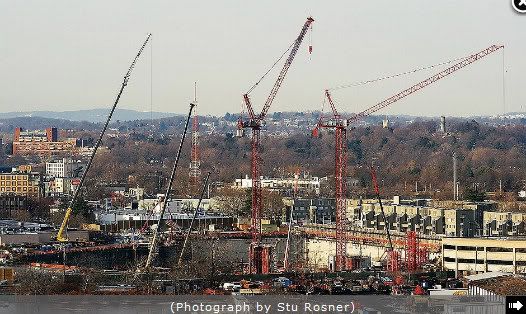
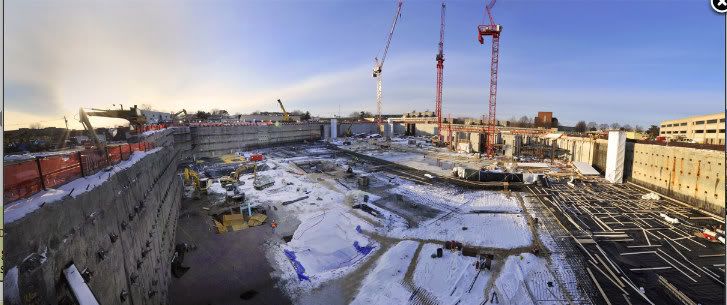
Yes, they could de-capitalize the endowment. They did seem to de-capitalize the endowment to start construction.Ok, I'm not a finance person, or economics major, but how can't take 1 billion out of there endowment to finish it off, if they still have 20-something billion? Especially when leaving it as is isn't free either. And if the economy never recovers and their endowment keeps decreasing then their screwed anywase.
Mayor Thomas M. Menino via Stellarfun said:President Drew Faust
Office of the President
Harvard University
Massachusetts Hall
Cambridge, MA 02138
Dear President Faust:
This letter is to follow up on our conversation regarding Harvard's current financial challenges
and their impact on the university's planned developments in Allston.
As you know, the city of Boston has been a proud partner with Harvard and the North Allston
community in facilitating project approval of the Science Complex and in advancing discussion regarding
your institutional master plan. Therefore, Harvard's decision to slow and possibly halt the progress of the
Science Center along with delaying the anticipated filing of the revised campus master plan is a grave
disappointment to me, and of course to the community.
While I understand that the current economic climate has had serious, adverse implications for
the university's ability to finance large scale development, our partnership in Allston has been based on
our firm belief that we were planning a neighborhood and not just a campus. Any decisions about the
future of the Allston campus inherently affect the future of the Allston neighborhood and the City of
Boston. Our decisions must be made together. The university may not make unilateral decisions.
I remain eager to do all that I can to maintain your progress at this critical time. To that end, at
this important juncture in the development and planning process, I want to outline the conditions under
which our respective interests in the future of Allston development can best be protected and advanced.
Within the next two weeks, it is imperative that key planning staff from the university meet with
staff from (he Boston Redevelopment Authority (BRA) to discuss two immediate concerns: 1) the plan of
action for the Science Center and 2) Harvard's vacant parcels in Allston, which are currently a blight to
the neighborhood.
Furthermore, during the course of the next 30 to 60 days, I expect that Harvard will consult with
staff from the BRA to discuss in detail the various other concerns surrounding the university's Allston
expansion. These issues include community benefits, the institutional master plan for the Allston campus,
community-wide planning, acquisition of properties in the North Allston area, and increased engagement
with the community.
Harvard should also provide an immediate assessment of the impact that the slowing down of the
project will have on our workforce and hiring expectations and the steps that will be taken to mitigate this
impact.
I believe Harvard also has an obligation to the residents of Allston and the City of Boston to
provide a thorough explanation of the institution's financial circumstances and other relevant details.
am enclosing a schedule of project-related issues that must be addressed immediately. In the coming
weeks both of our teams must agree on a specific and detailed course of action and the criteria by which
Harvard will make its future decisions with regard to the continuation of this project.
The City's ability to review and approve steps going forward in this process will require direct
and open dialogue between the parties.
Despite the challenges ahead, the City or Boston looks forward to the continued investment of
Harvard in our community. The legacy of our relationship sets an impressive foundation for us to build
upon as we face today's difficult financial conditions and other uncertainties that impact our shared future
interests. I am confident that maintaining strong, focused, and open communications between our offices
and with the community is fundamental to our abilities to work successfully together.
Sincerely,
Thomas M. Menino
Mayor of Boston
Enclosure
